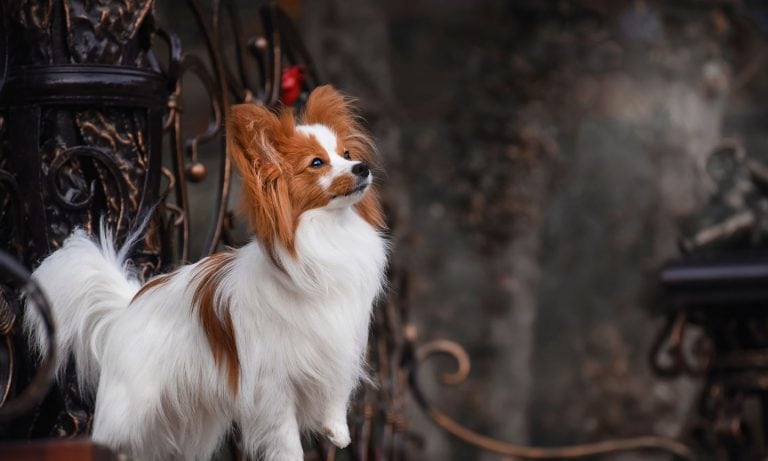Papillon vs Chihuahua

Breed Snapshot
Best For
Intelligent and full of energy, Papillons thrive with active pup parents who can provide physical exercise, mental stimulation, companionship and regular grooming (just look at that long, silky coat!). Because they're so small and adaptable,...
Intelligent and full of energy, Papillons thrive with active pup parents who can provide physical exercise, mental stimulation, companionship and regular grooming (just look at that long, silky coat!). Because they're so small and adaptable, Papillons are well-suited for homes large and small.
Papillon Temperament
Papillons are energetic little dogs who love adventure. They are confident, outgoing and generally get along well with everyone when they’re properly socialized and trained. Without plenty of socialization, these tiny pups can grow up to be overly dependent on their pet parents, so it’s important when rai...
Papillons are energetic little dogs who love adventure. They are confident, outgoing and generally get along well with everyone when they’re properly socialized and trained. Without plenty of socialization, these tiny pups can grow up to be overly dependent on their pet parents, so it’s important when raising a Papillon puppy to introduce them to a wide variety of people, pets and situations to build their confidence. But once that confidence kicks in, watch out—Papillons don’t know their own size, and their spunky, fearless attitudes can get them into trouble with larger dogs who won’t put up with their tiny ‘tude.
This cheerful little breed loves to be the life of the party and does well with older children and cats. Their small size and fragility, combined with their overabundant confidence, makes them not so great with small, rambunctious children or larger dogs (even sweet and tolerant large-breed dogs could accidentally injure a tiny Papillon while playing). So, in addition to socializing and training your Papillon, teach your kiddos how to properly interact with pups.
Papillon Traits

Breed Snapshot
Best For
Equal parts affectionate, charming and mischievous, Chihuahuas are small, adaptable dogs who thrive in households (small and large!) with no other dominant pets. This toy breed's ideal pet parent provides companionship, care and lots of...
Equal parts affectionate, charming and mischievous, Chihuahuas are small, adaptable dogs who thrive in households (small and large!) with no other dominant pets. This toy breed's ideal pet parent provides companionship, care and lots of attention.
Chihuahua Temperament
Chihuahuas are charming little scamps with an eye for mischief and a sense of bravery that outsizes their physicality. They’re playful pups who enjoy a good romp or game, even though it may not last long (depending on their energy level). And they love to snooze on laps an...
Chihuahuas are charming little scamps with an eye for mischief and a sense of bravery that outsizes their physicality. They’re playful pups who enjoy a good romp or game, even though it may not last long (depending on their energy level). And they love to snooze on laps and cuddle—that is, after all, what they’re bred to do.
They like a lot of attention and are quite portable. But even though they’re easily carried, they do still need to learn how to walk on their own and be able to engage in normal dog behaviors, like sniffing, exploring and playing. In other words, don’t pop them in a purse or a stroller and tote them everywhere—unless, of course, it’s somewhere risky with lots of feet that could hurt a tiny paw, like an airport or street festival.
The Chihuahua dog breed is said to resemble a terrier with their demeanor and can become quite feisty, especially if they feel threatened. Some sites report that the Chihuahua bite force is 3,900 pounds per square inch (psi), but those so-called Chihuahua facts are wildly inaccurate, when a lion is only at 600 psi. In truth, Chihuahuas usually inflict no more than a Level 1-3 bite, with no puncture deeper than half the length of one of their canine teeth.
To help your Chihuahua puppy overcome a nipping or protective tendency, socialize them by safely and slowly introducing them to new people and places from the get-go and start training when they are young. Early training will also help this smallest of dog breeds become wonderfully friendly and receptive to all members of the family, including other pets.




